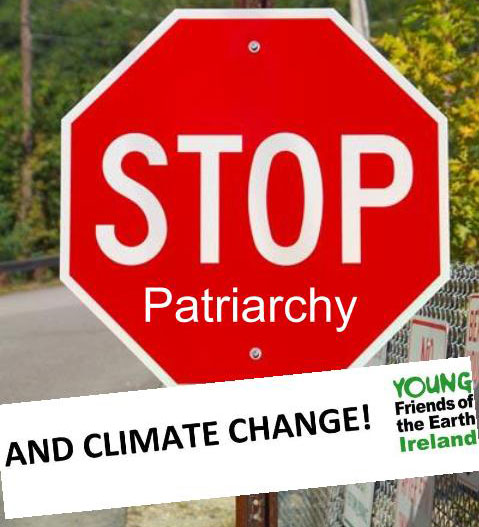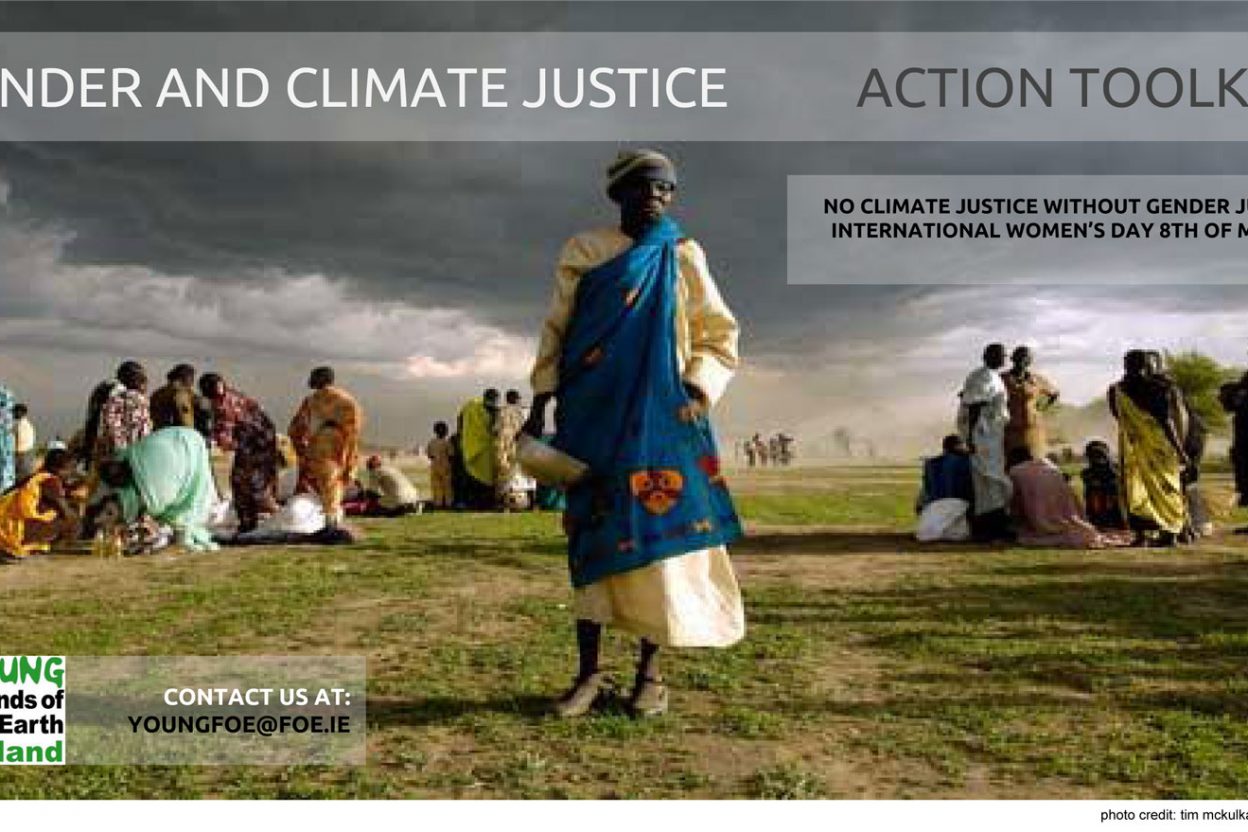Here is an interesting article on the very interconnected gender and climate justice issues witten by Emma Jayne Geraghty, a member of Young Friends of the Earth Ireland.
Climate change is the most pressing issue facing the world today. When we look at the disproportionate impact these changes have on women and girls, we can begin to see why climate change is a women’s problem. Women have multiple roles as food producers, primary carers, and through their productive and their reproductive work they ensure the welfare of their families and wider communities. The simple threat of food insecurity can bring with it the threat of gender-based violence, further marginalizing women in already vulnerable situations.
Women are systematically excluded from decision-making processes that effect their lives, environment and natural resources. As highlighted in the ‘Declaration of Women in Asia’ women are repeatedly categorized as ‘victims’ of climate change rather than seen as decision makers working in partnership in tackling current climate change realities and contributing to positive climate solutions for our future.

As part of the Climate Champions Programme, activists from Young Friends of the Earth Ireland wanted to take action on the gender dimension to climate change and so developed a gender and climate justice action toolkit. The action toolkit was distributed to university eco society students in advance of the 8th of March, International Women’s Day (IWD). Young FoE Ireland wanted to mark IWD with the launch of this toolkit in an effort to draw attention to the intimate relationship between gender and climate change.
On International Women’s Day YFoE Ireland National Coordinating Group member Emma Jayne Geraghty spoke out about gender and climate justice at the National Women’s Council of Ireland’s public event held on O’Connell street in Dublin. Some chalk graffiti was carried out around the city of Dublin also with slogans from the toolkit and posters distributed and put up to raise awareness.
We hope that this toolkit is just an initial step in a longer and more in-depth gender and climate justice campaign.

